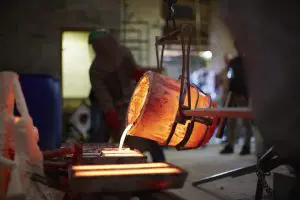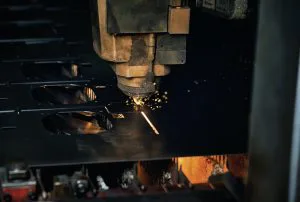Many die casting companies like to work with Zinc alloys because of its unique properties. Zinc is a soft metal that is easy to work with and has a low melting point. This makes it ideal for die casting because it can be easily molded into the desired shape. In addition, Zinc has a high resistance to corrosion and is very strong, this makes it an ideal material for die casting products that will be exposed to the elements. Finally, Zinc is very affordable, making it a great option for companies that are on a budget. We explain more about this metal’s properties and benefits below.
Table of Contents
Zinc’s Unique Characteristics
Some of the unique characteristics of Zinc alloys that make them a perfect for die casting are as follows:
- As a raw material, Zinc is recyclable and low in cost, making it a great option for companies that are on a budget.
- Zinc has great strength and hardness, making it ideal for die casting products that will be subject to wear and tear.
- Zinc has high dimensional stability and accuracy, making it perfect for die casting products that require precise dimensions. Zinc alloys can be cast to very thin walls without losing strength or accuracy.
- Zinc has a greater ability to cold form than other metals, making it ideal for die casting products that require near net shapes.
- Zinc has high electrical and thermal conductivity making it perfect for die casting electrical components or products that will be exposed to high temperatures.
- Zinc has high resistance to corrosion, making it ideal for die casting products that will be exposed to the elements.
Commonly Used Zinc Alloys
Here are some of the commonly used Zinc alloys in die casting:
ZAMAK 3: This is the standard Zinc alloy used in die casting. It has good ductility and corrosion resistance, making it ideal for parts that need to be formed or shaped after casting.
ZAMAK 5: This is a Zinc alloy that contains a higher amount of copper than ZAMAK 3. This gives it better properties such as increased strength and hardness. ZAMAK 5 is often used for parts that require a higher degree of precision.
ZAMAK 7: This Zinc alloy is a high purity alloy that contains a low amount of Magnesium thus giving it better ductility to manufacture parts that are more intricate. ZAMAK 7 in terms of strength is as strong as ZAMAK 5.
The Benefits of Working with Zinc Alloys
One of the most important benefits of Zinc is its accuracy, in fact Zinc alloys allow for a much higher dimensional stability and accuracy than other metals. This means that products made with it will be more precise, with less chance for error.
Secondly, Zinc has great machinability. Because of Zinc’s unique characteristics as mentioned above, it helps reduce production time and cost while avoiding product waste. Machining of Zinc is easy due to its ductility. This means that products made with Zinc alloys will require less time and effort to produce, and will be more cost-effective as a result.
Thirdly, another great benefit of working with Zinc alloys is that they can be casted with less draft angle than other materials. This is because when a Zinc alloy is cast, the molten metal flows more evenly into the mold due to its lower density.
Choose EKO for Your Die Casting Needs
If you are looking for a durable and versatile Zinc-based alloy for your next project, look no further than EKO Industries. We are a leading manufacturer of high-quality Zinc alloy parts and we work closely with a wide variety of industries, including automotive, medical, and more. Our team of material experts can help you choose the perfect alloy for your needs and provide guidance on the best way to use it to create the products you need. Contact us to find out more about about our die casting capabilities and how we can help you with your next project.



